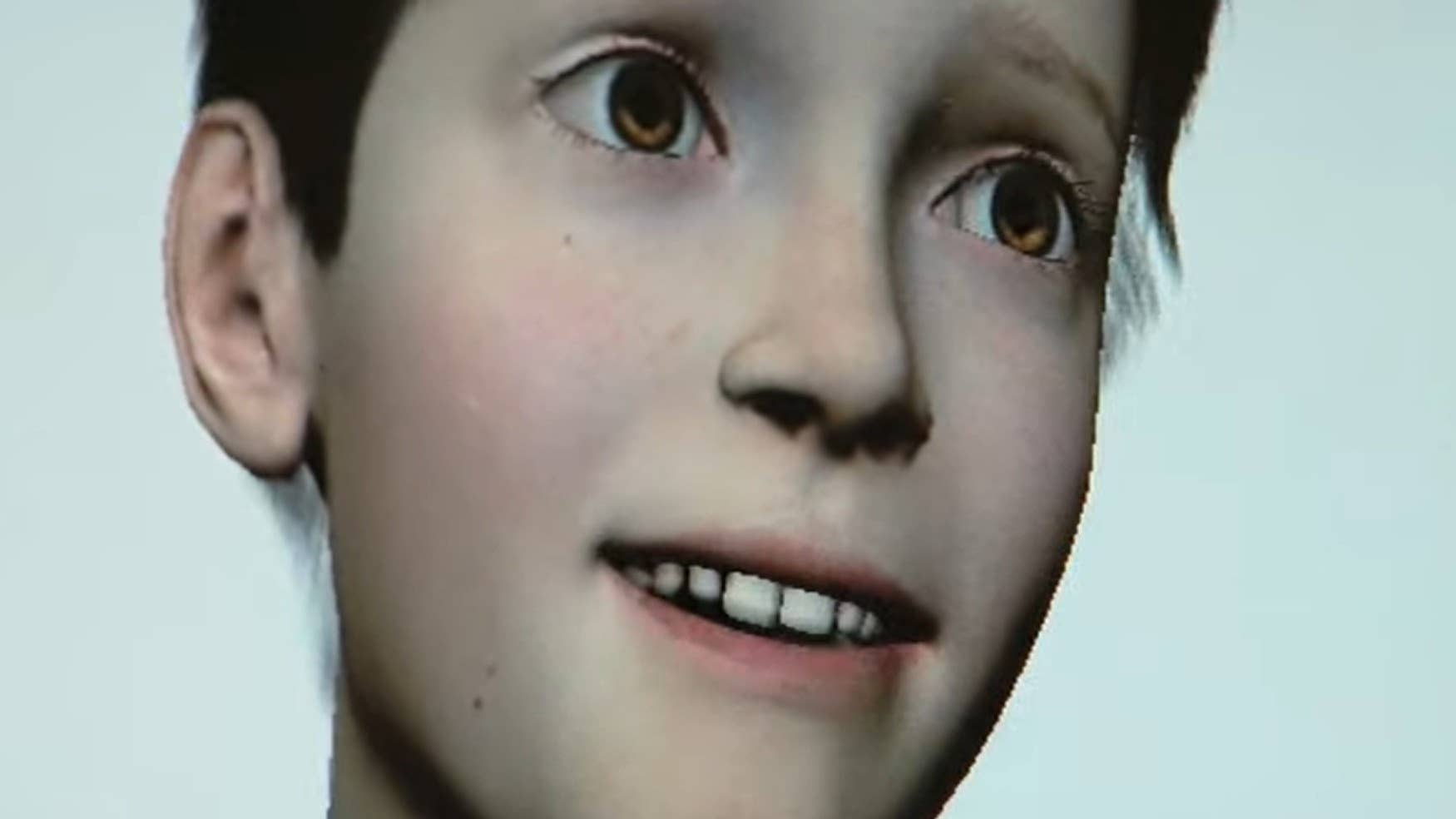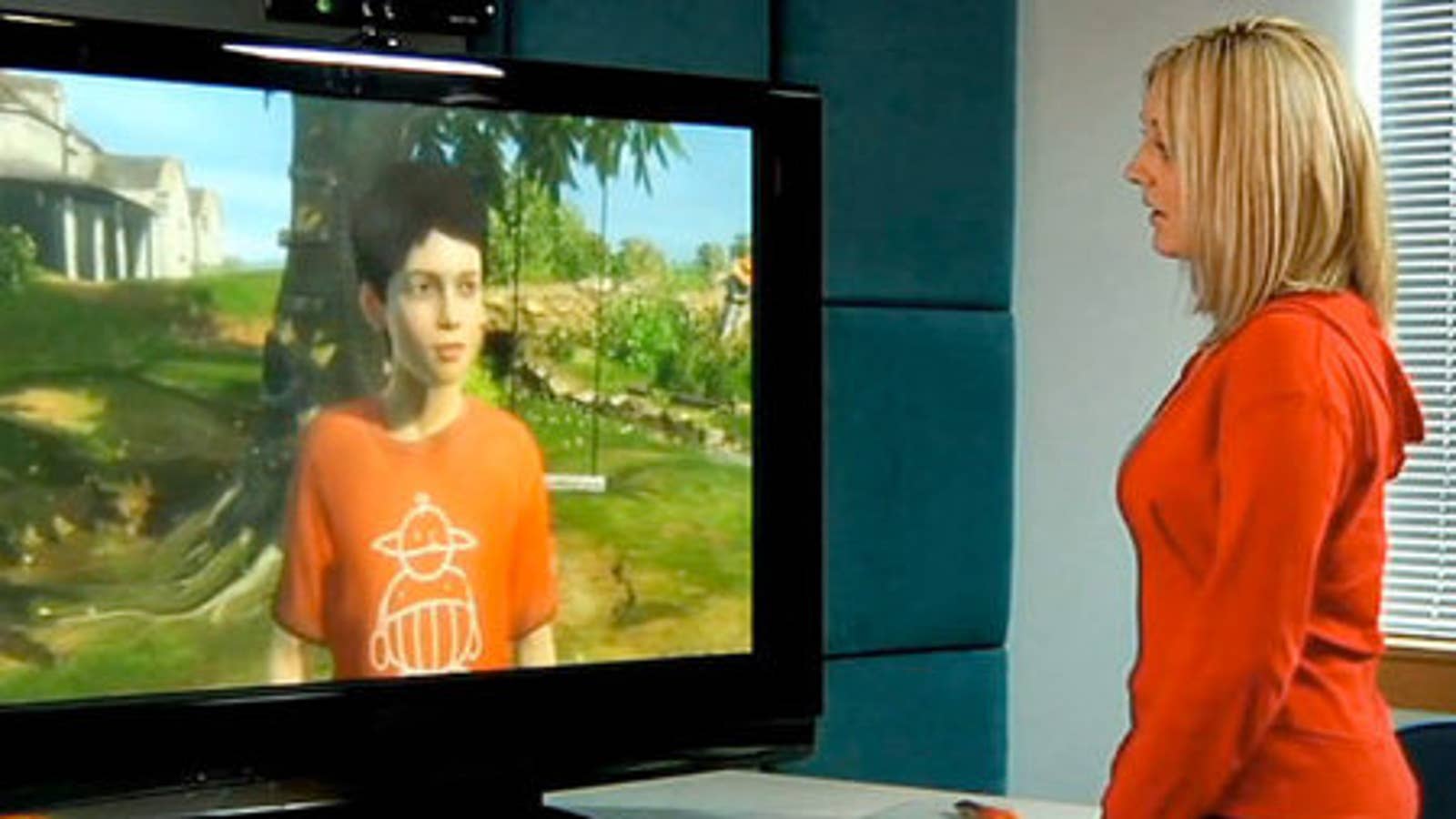Here's what happened to Peter Molyneux's Kinect game Project Milo
Here's what happened to Peter Molyneux's Kinect game Project Milo
"I don't want to prance around like a tw*t."
Image credit: Peter Molyneaux
News
by Victoria Phillips Kennedy
News Reporter
Published on May 23, 2025
Project Milo was initially revealed alongside Microsoft's Kinect device all the way back in 2009, and featured a young character named Milo who players could interact with. However, it never actually made it to release, and the project was cancelled in 2010.
So, what happened? Well, Peter Molyneux recently shared his side of the story during Nordic Game 2025 in Malmö, explaining how changing priorities led to the end of the project and how he didn't want to "prance around like a twat".
Does Anyone Really Want Long Games Anymore? Watch on YouTube
"I'll tell you exactly what happened," Molyneux said, as transcribed by Eurgamer's sister-site GamesIndustry.biz. "Microsoft hadus, we were owned by Microsoft, and they had...I'm going to say this, I might get in trouble...what I thought was a bit of a crazy idea. And that was to do gesture recognition as an input device, rather than a controller. They showed me this stuff, and Microsoft had this amazing research building. Incredible.
"It was run by this brilliant bloke called Alex Kipman. Makes me look boring and passionless – he had ten times more passion than I had. He had this demo of this device, and when he showed me this demo, it could see people's faces. He said, 'it can do voice recognition', and it had a massive field-of-view so it could see this whole room."
When Kipman first asked Molyneux his thoughts on the tech that would ultimately end up as the Kinect, the game developer replied:
"'Well, firstly' - when he did the demo, he was jumping all over the room - 'I'm a gamer, I don't want to play games standing up. That's the first thing. It doesn't appeal to me, I want to sit back, I want to smoke what I smoke, and I want to drink what I want to drink, and I don't want to prance around like a twat'."
Molyneux said he would go and instead create a demo of how he believed the technology should be used, with a more sedentary slant with a focus on feeling. For this, he took inspiration from his then seven-year-old son, Lucas.
"Anyone who's a parent will probably experience this: there was this moment where you realise you're crafting, inspiring, a human being," the developer said. "Wouldn't it be an incredible thing to create a game around that feeling… About inspiring, in Milo's case, a boy. That was contentious in itself, because of course, lots of people go to the dark side with that."
Staff at Molyneux's studio Lionhead subsequently started work on the demo, and began collaborating with a technology company on Project Milo's voice recognition.
"We had all sorts of experiences, like you could hand things to Milo in the game world and he would take them. They really worked well."
The team "cheated in a big way about how you could talk to Milo", Molyneux said, adding he wanted to make sure that players would be able to relax on the couch at the end of a day, and "just experience things with this game character".
"Even though voice recognition now is almost a solved problem, back in those days we solved the problem by cheating," Molyneux explained. "So, when Milo asked you the player a question, we had set that question up to different points, so he knew what sort of answer he'd give."
The developer went on to explain some more about the behind the scenes of Project Milo, admitting it was unfortunate that at the same time as all of this was going on, Microsoft was also working on its Kinect device.
"Andrealised that the device that Alex Kipman first showed off would cost k for consumers to buy. So they cost-reduced that device down to such a point, where the field-of-view… I think it was a minuscule field-of-view. In other words, it could only just see what's straight in front of you."
In the end, changing priorities at Microsoft, which wanted to focus on the Kinect, led to the end of Project Milo. Molyneux said the "death blow" which still "breaks his heart" today, "was that it was decided that Kinect shouldn't be a gaming device: it should be a party device. You should play a sports game with it, or dancing games with it."
Project Milo, then, "didn't fit into the Microsoft portfolio", and the whole thing was ultimately canned.
"No one ever saw the complete experience," Molyneux closed. "We didn't finish the experience. But it was a magical thing. What was so magical about it: it wasn't about heroes and aliens coming down, there wasn't this 'end of the world' narrative scenario.
"It was just experiencing what it's like to hang out with someone that loves you."
E3 2009: Project Natal Milo demo. Watch on YouTube
Eurogamer spoke to Molyneux last year, about his Masters of Albion project. Masters of Albion will take place "in the land of Albion", and has - in the words of Katharine Castle - big Black and White energy, with a more customisable bent that lets you design buildings, meals, armour and more.
#here039s #what #happened #peter #molyneux039s
Here's what happened to Peter Molyneux's Kinect game Project Milo
Here's what happened to Peter Molyneux's Kinect game Project Milo
"I don't want to prance around like a tw*t."
Image credit: Peter Molyneaux
News
by Victoria Phillips Kennedy
News Reporter
Published on May 23, 2025
Project Milo was initially revealed alongside Microsoft's Kinect device all the way back in 2009, and featured a young character named Milo who players could interact with. However, it never actually made it to release, and the project was cancelled in 2010.
So, what happened? Well, Peter Molyneux recently shared his side of the story during Nordic Game 2025 in Malmö, explaining how changing priorities led to the end of the project and how he didn't want to "prance around like a twat".
Does Anyone Really Want Long Games Anymore? Watch on YouTube
"I'll tell you exactly what happened," Molyneux said, as transcribed by Eurgamer's sister-site GamesIndustry.biz. "Microsoft hadus, we were owned by Microsoft, and they had...I'm going to say this, I might get in trouble...what I thought was a bit of a crazy idea. And that was to do gesture recognition as an input device, rather than a controller. They showed me this stuff, and Microsoft had this amazing research building. Incredible.
"It was run by this brilliant bloke called Alex Kipman. Makes me look boring and passionless – he had ten times more passion than I had. He had this demo of this device, and when he showed me this demo, it could see people's faces. He said, 'it can do voice recognition', and it had a massive field-of-view so it could see this whole room."
When Kipman first asked Molyneux his thoughts on the tech that would ultimately end up as the Kinect, the game developer replied:
"'Well, firstly' - when he did the demo, he was jumping all over the room - 'I'm a gamer, I don't want to play games standing up. That's the first thing. It doesn't appeal to me, I want to sit back, I want to smoke what I smoke, and I want to drink what I want to drink, and I don't want to prance around like a twat'."
Molyneux said he would go and instead create a demo of how he believed the technology should be used, with a more sedentary slant with a focus on feeling. For this, he took inspiration from his then seven-year-old son, Lucas.
"Anyone who's a parent will probably experience this: there was this moment where you realise you're crafting, inspiring, a human being," the developer said. "Wouldn't it be an incredible thing to create a game around that feeling… About inspiring, in Milo's case, a boy. That was contentious in itself, because of course, lots of people go to the dark side with that."
Staff at Molyneux's studio Lionhead subsequently started work on the demo, and began collaborating with a technology company on Project Milo's voice recognition.
"We had all sorts of experiences, like you could hand things to Milo in the game world and he would take them. They really worked well."
The team "cheated in a big way about how you could talk to Milo", Molyneux said, adding he wanted to make sure that players would be able to relax on the couch at the end of a day, and "just experience things with this game character".
"Even though voice recognition now is almost a solved problem, back in those days we solved the problem by cheating," Molyneux explained. "So, when Milo asked you the player a question, we had set that question up to different points, so he knew what sort of answer he'd give."
The developer went on to explain some more about the behind the scenes of Project Milo, admitting it was unfortunate that at the same time as all of this was going on, Microsoft was also working on its Kinect device.
"Andrealised that the device that Alex Kipman first showed off would cost k for consumers to buy. So they cost-reduced that device down to such a point, where the field-of-view… I think it was a minuscule field-of-view. In other words, it could only just see what's straight in front of you."
In the end, changing priorities at Microsoft, which wanted to focus on the Kinect, led to the end of Project Milo. Molyneux said the "death blow" which still "breaks his heart" today, "was that it was decided that Kinect shouldn't be a gaming device: it should be a party device. You should play a sports game with it, or dancing games with it."
Project Milo, then, "didn't fit into the Microsoft portfolio", and the whole thing was ultimately canned.
"No one ever saw the complete experience," Molyneux closed. "We didn't finish the experience. But it was a magical thing. What was so magical about it: it wasn't about heroes and aliens coming down, there wasn't this 'end of the world' narrative scenario.
"It was just experiencing what it's like to hang out with someone that loves you."
E3 2009: Project Natal Milo demo. Watch on YouTube
Eurogamer spoke to Molyneux last year, about his Masters of Albion project. Masters of Albion will take place "in the land of Albion", and has - in the words of Katharine Castle - big Black and White energy, with a more customisable bent that lets you design buildings, meals, armour and more.
#here039s #what #happened #peter #molyneux039s
0 Kommentare
·0 Geteilt
·0 Bewertungen







